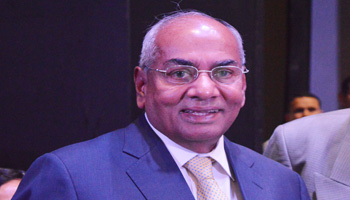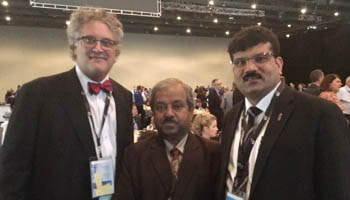Among the world’s largest 300 co-operatives and mutuals which have have grown their turnover by 7.20% to USD $2.53tn (2,533.1bn) IFFCO-the leading cooperative from India maintains its place of pride.
According to the data of 2016 edition of the World Co-operative Monitor (WCM) presented at the International Summit of Cooperatives in Quebec, IFFCO ranks second after NH Nonghyup in the ranking, which highlights the relevance of co-operatives in their countries.
The Monitor remains the only project of its kind, collecting and analysing data on the world’s largest co-operative and mutual organisations and other enterprises controlled by co-operatives and it has once again concluded the primacy of IFFCO in the world of co-ops.
The release reads: The Monitor also lists rankings by turnover based on the ratio to Gross Domestic Product (GDP) per capita, relating the turnover of the co-operative to the purchasing power of the country in which it operates. In this ranking, which highlights the relevance of co-operatives in their countries, NH Nonghyup comes first, followed by Indian Farmers Fertiliser Cooperative Limited (IFFCO), Crédit Agricole, health co-op Unimed of Brazil and Groupe BPCE.
Charles Gould, Director General of the International Co-operative Alliance: “The World Co-operative Monitor is now in its fifth year. There is no more appropriate way to celebrate this, than the 7% growth figure which we are proudly to announcing this year, and there is no better time than now, during the 2016 International Summit of Co-operatives. There is a grown interest for co-operatives worldwide, and we need to respond to this interest with adequate promotion of our model. The World Co-operative Monitor as the leading data source on the world’s 
The Monitor refers to data from 2014, which was collected from various sources, such as national rankings, sector rankings, existing databases containing financial data, annual reports and questionnaires. In total, 146 questionnaires were completed from organisations in 39 countries, including individual co-operative and co-operative federal bodies. The database for this edition contains information on 2,370 co-operatives from 63 countries. Of these, 1420 co-operatives from across 52 countries have a turnover of over USD $100m.
The top five co-operatives by turnover are: Crédit Agricole (USD $90.21bn), a network of co-operative banks from France; BVR (USD $70.05bn), Germany’s national association of co-operative banks; Groupe BPCE (USD 68.96bn), also a network of co-operative banks from France; insurer NH Nonghyup (USD 63.96bn), an extension of the National Agricultural Cooperative Federation’s financial operation from the Republic of Korea; and State Farm (USD $63.73bn), a mutual from the USA. State Farm was acquired by Desjardins Group in 2014, after data were collected.
The database for this edition contains information on 2,370 co-operatives from 63 countries. Of these, 1,420 co-operatives from across 52 countries have a turnover of over USD $100m.
The top 300 co-operatives come from 25 countries and have a combined turnover of USD $2.53 trillion (2,533bn), an increase of 7.20% from the USD $2.36tn reported in last year’s monitor.
Over 32% of these operate in agriculture, 39% in insurance, 19% in wholesale and retail trade and 6% in banking and financial services. Some of the top 300 co-ops are also active in the health and social care sector (1%), the industry sector (2%) and other services and activities.
The Monitor gathers data on co-operatives across all continents, demonstrating the important role of co-operatives in the world economy. It has become the major global report for analysing the world’s co-operative movement, providing information for research into co-operative business enterprises.
A new feature in this year’s monitor is a chapter dedicated to exploring co-operative capital. The chapter focuses on analysing the capital structure of the world’s largest co-operatives.
-Press Release

